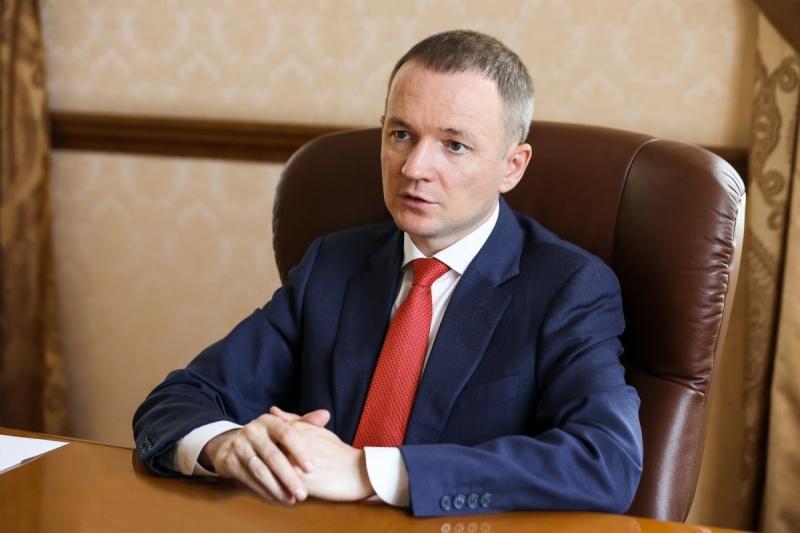The sanctions will not work. A “Drug Safety System” is being built up in the Middle Urals

Novouralsk celebrates the 20th anniversary of Medsintez Plant LLC, a Russian manufacturer of insulin, the antiviral drug Triazavirin, preparations for IVF treatment, and other medicines. Federal Press reports on how the Sverdlovsk company makes Russian patients independent of supplies from abroad, what challenges it is facing now and what new products it plans to bring to the market.
Replacing imports
The past year and a half has seriously affected the work of the Medsintez Plant: European and American suppliers of reagents and spare parts for equipment joined Western sanctions against Russia. Alexander Petrov, Chairman of the Plant’ Board of Directors, said that the team did a tremendous amount of work to find a replacement in Russia and China. The team had to check the products of several suppliers to choose the best option for each item.
“Colossal amounts of money were spent on the transition, a lot of research was done and a lot of papers were written. In the case of drugs, it is impossible to simply switch to another supplier, you need to write it all down in documents, test it, check stability, because the quality of the final product must not change,” Mr. Petrov explains.
Contrary to stereotypes, worthy analogues from Russia and China are not cheaper, and often more expensive than European and American equipment and reagents: they are produced in small batches, so their cost is higher. The Medsintez Plant had to establish the production of some substances independently.
Moving away from supplies from the USA and Europe will allow the pharmaceutical company to continue operating in new conditions. Mr. Petrov says that production of insulin, antiviral drugs and preparations related to reproduction will remain the core areas.
Insulin for humans and animals
Insulin has been produced in Novouralsk since 2008. Since then, the Medsintez Plant has mastered the production of genetically engineered and analogue human insulin, patented the technology of convenient injection pens for administering it and, which turned out to be important, taking into account the sanctions, began to independently produce the substances from which the preparation is made. Currently, the Urals plant holds about 30% of the Russian insulin market, but its production capacity will allow to supply Russian patients in full if necessary.
Back in 2020, the Plant received a license to produce veterinary preparations. The decision was taken just in time: sanctions of the last year resulted in Western suppliers leaving Russian cats and dogs without their insulin. Now owners are forced to use a human preparation, but it is difficult for them to maintain the dosage, and animals have difficulty withstanding standard injections. It is expected that as early as this summer, veterinary insulin from the Medsintez Plant will be sold in stores in injection pens of the volume required for pets.
Triazavirin survived the pandemic
Triazavirin, the antiviral preparation, that was completely developed in the Urals, entered the market in 2014. Its popularity has grown during the coronavirus pandemic, but even now sales are not declining.
“The demand for Triazavirin continues, people vote for it with their money. There are new Covid variants, there was flu in the winter. Even now we see a certain surge, and we associate it with some kind of viral infection,” Mr. Petrov said.
Triazavirin is included in the federal clinical recommendations Influenza in Adults and ARVI in Adults of the Ministry of Health of Russia as a direct antiviral preparation. Last year, Triazavirin was successfully tested for the treatment of ARVI in children aged 12 to 17. Further clinical studies in children of the next age group – 6 to 11 years – are planned.
Now the Medsintez Plant can cover 30% of Russia’s demand for medicines for treating influenza, ARVI, coronavirus, tick-borne encephalitis and other viral diseases. Meanwhile, scientists are already developing a new antiviral drug: the molecule has yet to be tested.

The Joy of Motherhood
A relatively new area is reproductive system drugs. The Medsintez Plant was the first in Russia to begin producing Primapur, a recombinant follicle-stimulating hormone for treating human infertility, which is used in the in vitro fertilization procedure. In the space of a few years, over 30,000 women were treated using this medicine and as a result, over 10,000 children were born. Currently, the Plant is ready to cover the demand for the hormone from Russian female patients with a twofold reserve.
Now the Novouralsk plant plans to launch the production of two more products, which are also used in the IVF procedure. These are preparations of human chorionic gonadotropin and human gonadotropin-releasing hormone antagonist.
The Medsintez Plant produces other medicines needed by Russian patients. In particular, the plant saved the country the trouble of having to buy infusion solutions – liquids that are administered intravenously for medical purposes – abroad. The most famous are saline solution, glucose, Ringer's solution and distilled water.
Thanks to the pharmaceutical company, Russia will not have to import solutions that are used for automatic apheresis – a modern method of collecting donor blood, allowing only the necessary components to be isolated from it.
Finally, the Plant has recently increased production of liquid antibiotics. Alexander Petrov attributes the increased demand, in particular, to the Russian special operation in Ukraine.
Competition with Foreign Companies
Главным вызовом для российской фармацевтики, по мнению Александра Петрова, сейчас является конкуренция с европейскими и американскими компаниями. Например, в клинических рекомендациях по лечению сахарного диабета до сих пор значатся самые инновационные инсулины иностранного производства – в результате на него уходят основные бюджетные деньги, а российский аналог закупается «по остаточному принципу».
“No doubt that these are good, innovative medications, but they are very expensive. And the question is whether they will be delivered tomorrow or not,” Mr. Petrov says about competitors’ products.
Another challenge is “evergreen” patents: a scheme whereby foreigners renew their drug patents by making only minor changes thereto.
For example, Sanofi (France) is thus blocking the entry of certain types of insulin into the Russian market. Currently, the government is discussing tightening requirements for patents, which will deprive Big Pharma of this opportunity.
“Switching to a Russian manufacturer”
Mr. Petrov sees the main way out as encouraging in-house development and moving to a cluster ideology where a drug makes its way from the laboratory to the patient. For example, the Medsintez Plant already employs about forty scientists who help to introduce new medicines into production.
“If the state wants Russian companies to replace the outgoing foreign medicines, we need support for clinical trials. We should pay those who were able not just to register a drug, but also to produce several trial batches,” Mr. Petrov suggests.
Other measures that could help Russian pharmaceutical companies include expanding the program of cheap loans to develop production capacity. The Medsintez Plant has already received such support from the Industrial Development Fund. Finally, Mr. Petrov proposes to increase purchase prices for vital and necessary drugs from domestic manufacturers.
In the future, the businessman does not exclude the “Iranian scenario”, in which foreigners will get rid of factories in Russia. In this case, medicines will be supplied only through distributors, who will be able to stop selling them if they are not profitable enough.
“When we are in an unfriendly situation, there should be a switch to a Russian manufacturer so that the state receives its own drug safety system,” Mr. Petrov sums up.


































































































































